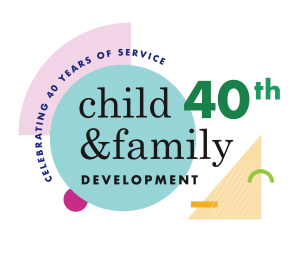By Guest Blogger, Lindsey Pallas, LPA, Child & Family Development
This time of year, people usually enjoy a sneak peek of spring that is right around the corner. Family calendars begin to fill up with spring break plans, sporting events, cookouts, and outdoor festivals. However, the atmosphere in our nation and around the world feels different at the beginning of 2020. As a novel strain of the coronavirus spreads throughout the world, so does a sense of caution, worry, and fear. We are constantly reminded to wash our hands for 20 seconds and to cough into our arms. Hand sanitizer and antibacterial soap are flying off grocery store shelves. Media outlets update consumers daily, if not every few hours, about the number of active cases and other statistics. It is on everyone’s mind, including children’s.
When children experience a traumatic event, such as a natural disaster or a pandemic, they may appear frightened and confused. Often times, families and caregivers are unsure how to talk to children about scary events and may avoid doing so to avoid any additional stress. During these times, it is important to remember that children are resilient and that having sensitive and thoughtful communication regarding a traumatic event is a protective factor against anxiety. Here are some ways to have those discussions with your child to minimize distress and maximize safety.
1. Consider your child’s age when thinking about how to have this conversation.
Preschool children (3-5): Focus on teaching this group of children good hygiene skills. It is unlikely that these children will understand explanations of the coronavirus. This group is more likely to respond to their caregivers’ stress, so it is important for caregivers to monitor their own stress response to the coronavirus.
Younger children (5-11): Give them a simple explanation about the virus. Let them how it passes from one person to another. Then, teach them ways to keep their body safe during this time, such as washing their hands for 20 seconds, keeping their hands away from their face, and coughing/sneezing into their elbow.
Older children (11 and older): Provide them with explanations as to how the virus transmits. People who feel as if they cannot do anything in the face of a stressor are more likely to experience distress and are at a higher risk for experiencing anxiety. So, let children know that they can do their part by taking the necessary safety precautions (i.e., washing hands for 20 seconds, covering their mouths, etc.). Additionally, enough time has gone by that it is likely that children have heard about the virus already. To understand their perspective or current understanding of the virus, find a quiet, calm time to talk to your child about what they know about the coronavirus. Sometimes it is easier to have these conversations if you both are engaged in an activity together, such as playing a game or riding in the car together. Allow them space and time to talk about their feelings regarding the virus, but do not force this conversation. If, and when, they are ready to talk, be open and honest, correcting any misinformation about the facts, and answering questions they may have.
2. Avoid excessive reassurance: Many caregivers may feel pulled to reassure their children, especially if their children are visibly anxious about the event.
Providing reassurance may be helpful in the short term, but consistently providing reassurance can make distress and anxiety worse. With reassurance, children are unintentionally rewarded for their anxiety. So, when children are reassured, they receive the message that if they are anxious, they will get something desirable (i.e., a connection with a safe figure). Thus, reassurance increases the likelihood that the child will be anxious and seek reassurance in the future. Through reassurance, children may also receive the message they are not capable of dealing with distress without others’ help, as reassurance prevents children from an opportunity to manage anxiety on their own. It is important to help children feel confident in their own ability to cope with distress. Rather than reassuring, listen to their concerns and validate their experiences. Then, offer several strategies they could use to manage their worries, such as taking deep, slow breaths, squeezing a ball or Play-Doh, listening to calming music, or expressing themselves through art.
3. Avoid giving too much information.
Once again, consider your child’s developmental level. In general, it may be helpful to stick to the information that children need to understand how the virus is spread and what they can do to stay safe.
4. Limit media exposure.
Children have this uncanny ability to hear everything. In order to minimize exposure to frightening news about the event, it may be helpful to limit exposure to media. If media coverage is going to be viewed by children, parents may want to record and watch it first and/or watch it along with their children. Be available to answer questions that children may have while watching.
5. Monitor our own anxiety.
Children often look to their parents and other meaningful adults for guidance in how they react to significant events and manage their emotions. Oftentimes, children mirror their parents’ own stress. As such, it is important for parents to monitor their own stress levels and experienced anxiety surrounding the coronavirus. Model self-care, establish good routines, get quality sleep, eat balanced meals, exercise, and demonstrate positive coping strategies.
Additional Reading:
Just for Kids: A Comic Exploring The New Coronavirus
Coronavirus-BrainPOP Learning Experiences
Lindsey Pallas is a Licensed Psychological Associate at Child & Family Development. Psychologists and counselors at Child & Family Development provide ongoing therapy services to preschoolers through young adults to address concerns related to mood, behavior, and social skills. In children and adolescents, playing, drawing, building, and pretending, as well as talking, are important ways of sharing feelings and resolving problems.
Child & Family Development

Website
Facebook
Instagram
Twitter
Locations:
Mitdtown:
4012 Park Road, Suite 200
Charlotte, NC 28209
704.332.4834
Pineville:
10516 Park Road
Charlotte, NC 28210
704.541.9080



